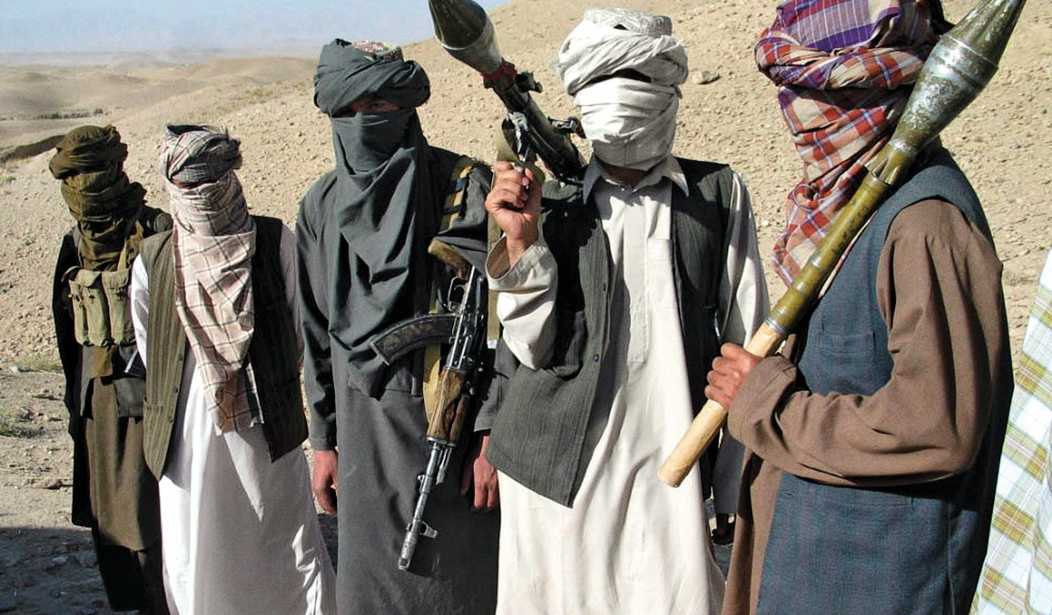The spokesman for U.S. operations in Afghanistan told reporters today that the Afghan army is understaffed, poorly led and thinning itself out too much with checkpoints.
Brig. Gen. Wilson Shoffner, deputy chief of staff for communications on the Resolute Support mission, said in a teleconference from Afghanistan that the old conventional wisdom of the “fighting season” in which bitterly cold months would be relatively peaceful no longer applies.
“That’s really an outdated term and it’s outdated for a couple of reasons. One is that the fighting really takes place year-round. And I’ll point to the fact that the Afghan security forces didn’t wait to the start of the declared fighting season to begin their operations. They started security operations in January of this year and have continued that throughout the year,” he said.
“So they’ve been very busy and their operational tempo, as we refer to it, has been very high, much higher than it had been in the past, which is why they are going to need some time to reset and refit their force.”
Fighting has continued to be busy in the south this winter, while the security situation for Afghans in the north, east and west is more “manageable.”
“Clearly, there is still some challenges in the east, particularly in Nangarhar. The south, most particularly in Helmand, remains contested, but we expected that. We expected for the Taliban to hold on to the what has been traditionally the heart of their support base,” Shoffner said. “…We expected a tough fight there and it has been a tough fight, and we expect that tough fight to continue through the winter.”
The general outlined four things that the Afghan National Security Forces have to do this year to be effective.
They need to “implement a force readiness cycle,” with “a training phase where they’re getting ready for combat operations, and then an operational phase where they’re in the fight, and then they’ll come out of that and they’re go into a reset phase.”
“The second is to reduce checkpoints. President Ghani has made this a major point of emphasis. They’ve got too many checkpoints and they’ve got too many of their forces strung out on checkpoints. There’s an old military saying that if you defend everywhere, you defend nowhere, and this is particularly true in Afghanistan,” Shoffner said.
Then, the Afghan have “got to make some tough leadership choices.”
“They’ve got some leaders that need to be replaced, they’ve got some leaders that are corrupt that need to go. The Afghan security forces are making these changes. They’ve made a lot of them in 2015. Those new leaders are going to need some time to get established, and they’re going to need some time to form their units, but that’s ongoing,” he said.
Then there’s the problem of sheer numbers.
“Recruiting is another area of emphasis,” Shoffner continued. “Currently, the Afghan national army has a shortfall of about 25,000 overall. They’ve established the goal of closing that gap over the next six months, and that’ll be a significant — a significant accomplishment, but something that’s got to be done so that they have the combat power to continue into 2016.”
The general added that “when units have an issue with attrition, it typically is traced back to poor leadership.”
“Soldiers have got to be paid on time. They’ve got to be fed on time. And they’ve got to be given leave when they deserve leave. And if one of those things or a combination of those things doesn’t happen, then the soldiers will leave. Now, sometimes they’ll come back, but that obviously is no way to run an organization.”
Out of 404 districts in Afghanistan, the Taliban have control over nine and “we assess they have influence in about 17 others,” Shoffner said.
“The Taliban’s goal remains the south, particularly the Helmand region,” he said. “We think their activities in the north are an attempt to draw Afghan security forces away from Helmand, which remains their goal.”
ISIS in Afghanistan is characterized as “operationally emergent.”
“I’ll define that as not having the ability to orchestrate or control operations in more than one part of the country at a time. We’re not seeing Daesh elements in Iraq or Syria orchestrating events here in Afghanistan.”









Join the conversation as a VIP Member